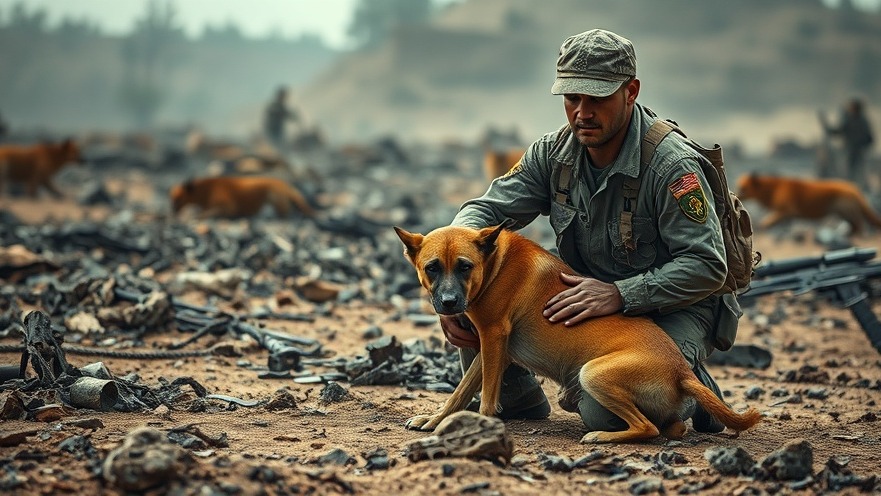
Understanding the Invisible Victims of War: Animals' Plight
The ongoing war in Ukraine, now in its third year, has brought dire consequences that reach beyond the human toll. With thousands of people confirmed dead and millions displaced, the spotlight often skips over a different group of victims. Animals, both domesticated and wild, have suffered immensely as their habitats are destroyed and family ties severed. The film anthology Animals in War, which premiered at the Tribeca Film Festival, explores these overlooked narratives, highlighting the need for empathy towards all living beings affected by conflict.
‘Animals in War’ Film Anthology: Art Meets Awareness
This powerful anthology consists of seven short films that present the stories of animals caught in the crossfire of human conflict. These films narrate incidents based on true events and are artistically varied in approach, uniting under the shared theme of compassion. Featuring poignant characters like a white rabbit and a wolf, the stories serve as a haunting reminder of the war's environmental and emotional devastation. As Casey Baron remarked, this anthology isn’t just about animals; it’s a call for global awareness and reflection on how conflicts impact every creature on our planet.
The Collaborative Effort Behind the Lens
Creating Animals in War was no small feat. Nearly 500 filmmakers from Ukraine and across the globe dedicated two years to this project, resulting in a collaboration that encompasses voices from both sides of the conflict. Directed by renowned Ukrainian filmmaker Myroslav Slaboshpytskyi, renowned for his critically acclaimed film The Tribe, the anthology's emotional depth is amplified with a soundtrack featuring music by Imagine Dragons, elevating its message even further.
A Call to Action: Your Role in Animal Welfare
In response to the needs created by the war, organizations like Save Pets of Ukraine have emerged as beacons of hope. Partnering with the U-Hearts Foundation, this initiative works tirelessly to protect animal welfare, channeling donations and resources to shelters and volunteers in Ukraine. Philanthropic efforts such as these underline a crucial point made by producer Oleg Kokhan: the treatment of animals reflects a nation's civilization. As boutique hospitality professionals, the challenge lies in recognizing this interconnectedness and prioritizing compassion in your business practices.
Climate Awareness: Beyond the Immediate Conflict
Moreover, the ecological impacts of the war extend to climate awareness and sustainability efforts. The war's destruction leads to increased microplastics in ecosystems, harming wildlife and polluting nature reserves. In this environment, strategies such as chaos gardening and exploring leather alternatives become more relevant than ever. These sustainable practices not only aid the affected ecosystems but also align with the values of modern consumers who look for eco-conscious hospitality experiences.
Embracing Sustainability in Hospitality
As you engage in efforts to support animal welfare and ecological preservation, consider how your hospitality business can align with these initiatives. Whether it’s using materials that avoid sterile plastics or sourcing local, sustainable produce that contributes to the restore of biodiversity, your choices can have a cascading positive impact on both animals and the environment. The notion of eco-travel expands into a deeper commitment—one that sees animals not merely as collateral but as integral to the natural fabric we all share.
By holding high standards of compassion and sustainability, boutique hospitality professionals can lead by example, nurturing an environment where all life is celebrated and cared for. Through films like Animals in War, there lies an opportunity for further dialogue on how each of us can contribute to this compassionate narrative. Every action counts, and it is time for us to ensure that animals, too, have their stories told and protected.
 Add Row
Add Row  Add
Add 




Write A Comment